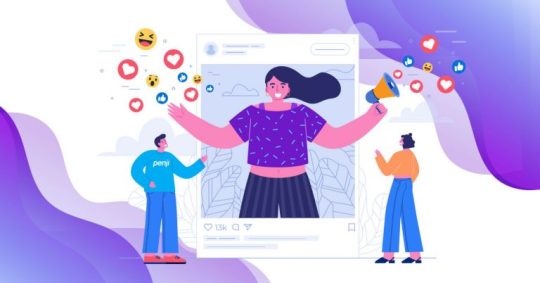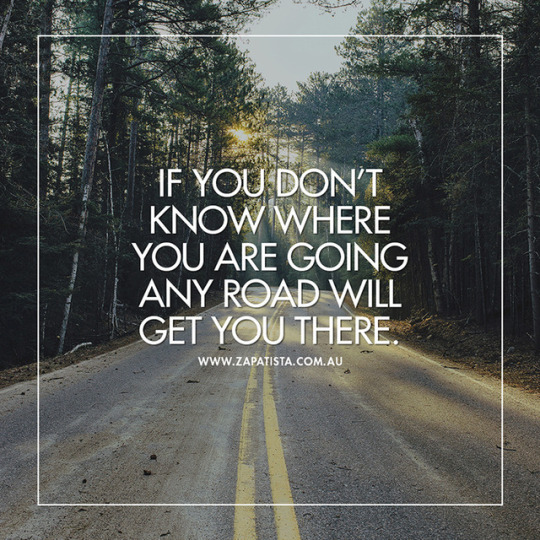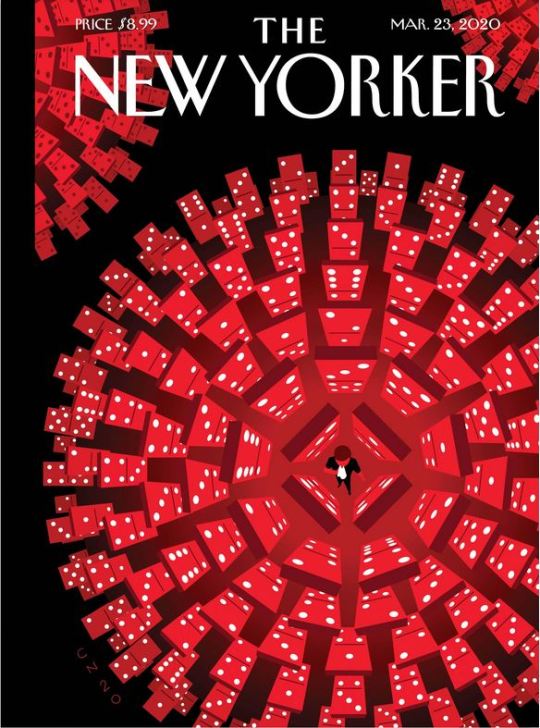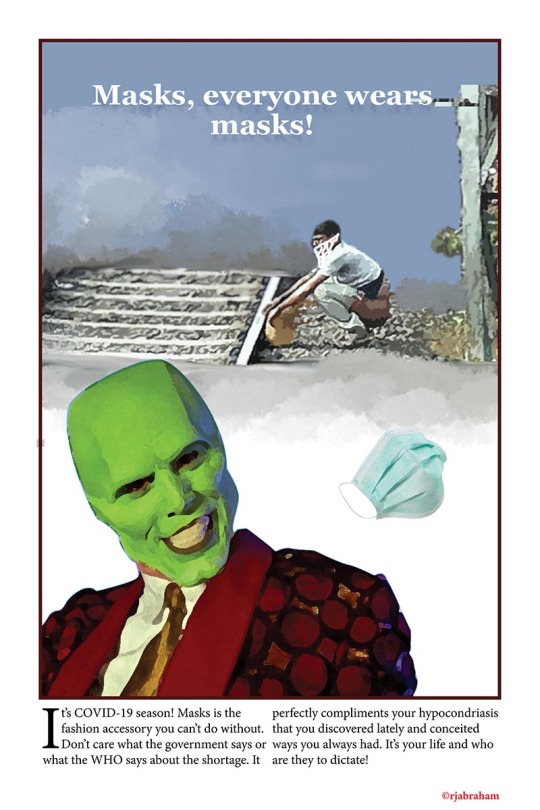Text
Be your own media
What will happen if we close down all big media houses and let brands cover the news? How do you feel about watching Apple News Network and reading Cola Post?
May be, it won’t come to that… they may come up with better names.
But, that’s where things are headed and it is a good thing.
Both media companies and brands need fans
Society is undergoing massive transformation. Opposing viewpoints are seen just as a matter personal preference: they are not considered on the basis of merit.
Two viewpoints are considered on the same level of two sports fans cheering for their team. Tribal instincts have replaced reason.
Media is no longer the arbiter of truth and objectivity. They have lost the clear edge they had over brands—their commitment to truth.(Why care about truth, if there is no truth?)
Brands need its fan base this to sell their products. Media too need fans to sell their content.
To sell its content, it has to confirm the inherent bias of its viewers/readers rather than challenging them.
Besides, anyone who has followed any news for some time knows that each media company has their own political affiliations.
Media companies want subscribers for its news, brands want subscribers to whom they can sell.
The difference is just in the way they make money. When brands produce content, they want to ultimately cast their product in favourable light.
Most content brands produce do not aim to sell directly. It is a way to entertain or inform their audience. They even about talk their competitors without berating them.
Media companies, on the other hand, neither want to hurt the brands that advertise with them nor displease their subscribers. It’s a balancing act. Contrary to popular perception, it’s the media companies that have its fingers in too many pies, when it comes to covering news.
Covering one’s own news is the best way to combat fake news.
In 2013 a New York Times review of Tesla said that it ran out of power sooner than promised. This cost Tesla billions of dollars in sales. Elon Musk decided to fight back, not by hiring rival media companies to review the car but, by writing a series of blog posts explaining why that is not the case.
Brands (or individuals) can speak to their audience directly without the need of media organisations.
This decentralised form of media is the antidote to distortion of news.
Advertisement prices need correction
Television and newspaper advertisements prices are unreasonably high. Comparatively, content marketing is a better investment for a business as it supports everything from brand awareness to product development.
Many qualified journalists are now making the jump from the media to brands.
The best time to start content marketing, as they say, was ten years ago.
The next best time is now.
Start a blog, establish your own editorial policy and cultivate a fan following.You can be your own media company. You need not be a big brand to do that.
0 notes
Text
Focus on value, not on innovation
There is a difference between betting on trends and betting on the future.
One must quickly identify and bet on technologies of the future. But that’s good only if you are investing in the stock market.
The mark of an entrepreneur is not identifying technologies.
An entrepreneur is concerned about the approach she would adopt to solve a problem, not about the technology that would be employed.
If a technology is mature enough, she just happens to use it.
People don’t care about technology. They care about their problems and how it can be solved.
They want to know how a company can help them make their lives better.
Technology and innovation are important. But it is only a small part of the big picture.
Great companies do not aim to be “market pioneers”. Instead, they focus on creating value to its users.
There are many technological innovations that do not provide a significant improvement in value over existing ones. Then, other companies reap the benefits by providing the same technology at a significantly lesser price.
0 notes
Text
Ambition over goals
To be a successful entrepreneur you have to be ambitious than being goal oriented.
“Ambition and goal are two different things; how can you compare the two? You need both”, you may say.
Yes, that is true. But, hear me out.
If you want to make a presentation next week, its better to break it into manageable pieces and set goals for each day. If you want to take a course and pass an exam, setting goals will help. And may be a little ambition too.
If you want to lose 10 kilos, setting goals would help. Or maybe not.
(I’ll come back to losing weight in a moment and tell you what it has to do with startups.)
Goals only work when the number of variables are few. The success of a goal depends on how well you are able to control these variables.
When the number of variables increase, your ability to control it decreases. This is only human.
But still, you may end up blaming yourself unnecessarily.
Thus, goals are also notorious for burning you out.
In situations where there is extreme uncertainty (like a startup) goals are useless. This is because every week your goals could change depending on the validated learning.
Only your ambition to make something useful for others will help you move forward. Successful startups therefore find a system to adapt to constantly changing situations.
My favourite definition of a startup is by Steve Blank. He defines a startup as “a temporary organization formed to search for a repeatable and scalable business model.”
To be successful in business, you need a system, rather than goals. This is because the variables are too many to set any reasonable goal.
As they say, “life happens”.
Now, to lose 10 kilos, setting a goal would help. But to lose that 10 kilos and keep it off, you need to make it your ambition to be healthy.
Look at it from the other side: You hadn’t set a goal to gain 10 kilos.
You just indulged in a pattern that led to the weight gain.
Instead, just do the opposite now. Make it your ambition to stay healthy.
Likewise, you can reverse engineer your failures and make your startup a success by just being ambitious.
0 notes
Photo

Many of you who read this post are good writers. Great writers are such a rarity that you wouldn’t be reading this if you were one.
Good writing is simple to learn.
One, know whom you are writing for.
Two, nudge pre-existing ideas into its place to prove or illustrate a point.
It is this nudging that gives writing its perspective.
A writer does not create anything from thin air. She is just inviting you to look at the world from her perspective.
0 notes
Quote
The big question of our time is not, "Can it be built?" But, "Should it be built?"
Eric Ries
0 notes
Text
Persistance. Or, Madness. Or, Whatever You May Call It
Edison’s famous light-bulb quote reads, “I never once failed at making a light bulb. I just found 99 ways not to make one.”
In one of the versions of the quote the number of times he tries to invent the bulb goes up to a 100, in another to a 1,000 and in some other a 10,000 times.
But I digress. Most of us get the point: you must keep trying despite the odds.
However, do you really get the point?
Are you prepared to do nothing but fail for the next 99 days, for the next 100 days, for the next 1,000 days, for the next 10,000 days? To go on with no shoreline in sight, but empty blue ocean.
You hear the sweet siren song to return to the comfort of familiar work.
Sometimes you do see the land, but soon realise that it was a mirage. In the morning you look yourself in the mirror and say, “you crazy bastard”.
Yet, you have the audacity to tell everyone that today you will make progress. And you sell it so well that it motivates you.
You are pulled apart in the opposite directions, your center falls apart.
But you can’t stop looking at that anomaly in data or wondering what went wrong with that perfect plan. You keep refining and return to it again and again, and again.
,
Is it because you are a maniac? Is it because of the promise of the pot of gold, kind of chasing the gamblers high?
No. But yeah, you are certified maniac and you want that money (who doesn’t?)
But mostly it is this: sheer joy of finding things out. It is simply what you do in life and you’d rather do nothing else.
Are you living the startup life?
0 notes
Text
A good writer is like a good thief
0 notes
Text
Yesterday Honda greeted its readers by wishing them a Happy 2025
Yesterday, the first of January, 2021 Honda greeted its readers by wishing them a Happy 2025. What is going on here? You have to read the ad to make sense.
The heading does what it is supposed to do and does that exceptionally well—make the reader read the ad copy. The copy goes on to say, “lets pledge to move on with a mask”, to which a reader may quip, “this year too? With a mask?”
Not very confidence inspiring.

The newspaper that ran the jacket ad is Malayala Manorama
Now, take a look at the jacket ad of the Hindu. It had a more conventional LIC ad with the words 2021, "hope", "security" "health", "future" etc. Very positive and assuring. It is also clear that LIC is trying to shed its traditional image and trying to appeal to the millennials with the illustration and graphics.

(My suggestion would be have a surrealist interpretations of the illustrations like shown in the third picture. This would resonate well with the millennials. But this, to some extent, may not sit well with its traditional customer segment.)

Which ad is better? I would vote for the Honda ad for it great headline, despite the mediocre sounding copy that would may even sound negative. As the saying goes, “there is no negative publicity”. There is publicity or there is no publicity.
What do you think?
0 notes
Text
To the Young Who Want to Die
by Gwendolyn Brooks
Sit down. Inhale. Exhale.
The gun will wait. The lake will wait.
The tall gall in the small seductive vial
will wait will wait:
will wait a week: will wait through April.
You do not have to die this certain day.
Death will abide, will pamper your postponement.
I assure you death will wait. Death has
a lot of time. Death can
attend to you tomorrow. Or next week. Death is
just down the street; is most obliging neighbor;
can meet you any moment.
You need not die today.
Stay here–through pout or pain or peskyness.
Stay here. See what the news is going to be tomorrow.
Graves grow no green that you can use.
Remember, green’s your color. You are Spring.
2K notes
·
View notes
Text
https://marker.medium.com/what-everyones-getting-wrong-about-the-toilet-paper-shortage-c812e1358fe0
Guess what is reason behind the high demand of the new "craptocurrency", "buttcoin" aka toilet paper. (Hint: It's not hording.)
0 notes
Photo

If you don’t know your goals you are going to take every opportunity that comes your way. You will end up in a place where you think you have reached your goal.
1 note
·
View note
Photo

Almost as rude as people who wear their sunglasses during a conversation.
9K notes
·
View notes
Quote
...in many cases, incompetence does not leave people disoriented, perplexed, or cautious. Instead, the incompetent are often blessed with an inappropriate confidence, buoyed by something that feels to them like knowledge.
We are all Confident Idiots, David Dunning
0 notes
Text
New Yorker Covers on Covid-19
Here is the cover for the New Yorker magazine’s March issue by Christoph Niemann. The work titled Critical Mass shows “both isolation and interconnectedness” which are the two grim realities sorrounding the spread of coronavirus.

Critical mass in business is when a company can run of its own without additional investments. In the case of covid-19, it could mean that the disease has crossed the borders of the country of its origin and there is community-level outbreak in other countries around the world.
To see more of Niemann’s sketches visit his Instagram page, abstractsunday
Here is the lastest cover of New Yorker magazine by Eric Drooker:
It shows a lone janitor sweeping the foyer of the “Grand Cental Terminal”-- the emptiness and the longing to return to the normal is plapable in the work.

1 note
·
View note
Text
Should you use hashtags for Facebook posts?
It’s been quite some time since Facebook surpassed Google as the main driver of traffic to websites, especially for that of news media. Facebook and Twitter have long since replaced Google as the primary source to consume news and information. Now there is a reversal in this trend as Facebook started prioritising family and friends over news and other information.
Now, the question is does hashtags work in Facebook like it does in Instagram and Twitter. The short answer is no. But the long answer is that you can use hashtags in Facebook, but under certain conditions.
Hashtags does not work in Facebook like it would work on Twitter or Instagram.This is because of the different nature of these platforms.
Twitter and Instagram are designed for people to discover other people and interests. Hashtags in these platform is a way to join a conversation and make friends.
On the other hand, Facebook is designed more as a closed and private networking platform. It’s aim is to connect you with your friends and family. Here, individual hashtags are not searchable. Only that made by content publishers or brands are seachable. Hence, the hashtags in FB are mostly branded hashtags.
(To search for hashtags in FB, type in www.facebook.com/hashtags/xxxx into your browser; replace xxxx by the hashtag you are searching for.)
There is one more reason why you may consider skipping the hashtag in your post: In a study by Buzzumo, which analysed 1 billion posts from 30 million pages, shows that using hashtags would infact bring down your engagement.
However, we need not completely depend on this study because it is just correlative and an aggregate data.
You ca use to use hashtags if:
1. You have your Facebook account settings set to public.
Here is how to do that:

2. You are using a well-recognised and popular ones
3. Use maximum two, preferably one, and that, at the end of the post.
1 note
·
View note
Photo

Refuse to buck the trend. Act rationally. Leave the mask for the people who actually need it. Here is the WHO on how and when to use masks:
Should I wear a mask to protect myself?
Only wear a mask if you are ill with COVID-19 symptoms (especially coughing) or looking after someone who may have COVID-19. Disposable face mask can only be used once. If you are not ill or looking after someone who is ill then you are wasting a mask. There is a world-wide shortage of masks, so WHO urges people to use masks wisely.
WHO advises rational use of medical masks to avoid unnecessary wastage of precious resources and mis-use of masks.
The most effective ways to protect yourself and others against COVID-19 are to frequently clean your hands, cover your cough with the bend of elbow or tissue and maintain a distance of at least 1 meter (3 feet) from people who are coughing or sneezing.
🚮 How to put on, use, take off and dispose of a mask?
1. Remember, a mask should only be used by health workers, care takers, and individuals with respiratory symptoms, such as fever and cough.
2. Before touching the mask, clean hands with an alcohol-based hand rub or soap and water
3. Take the mask and inspect it for tears or holes.
4. Orient which side is the top side (where the metal strip is).
5. Ensure the proper side of the mask faces outwards (the coloured side).
6. Place the mask to your face. Pinch the metal strip or stiff edge of the mask so it moulds to the shape of your nose.
7. Pull down the mask’s bottom so it covers your mouth and your chin.
8. After use, take off the mask; remove the elastic loops from behind the ears while keeping the mask away from your face and clothes, to avoid touching potentially contaminated surfaces of the mask.
9. Discard the mask in a closed bin immediately after use.
10. Perform hand hygiene after touching or discarding the mask – Use alcohol-based hand rub or, if visibly soiled, wash your hands with soap and water.
1 note
·
View note
Text
The Cure for Sanitized Hands
I
I sit here at my home in Kerala, where the weather could kill coronaviruses and, where I can barely make it to the end of the day. I read jittery WhatsApp messages and nonchalantly scroll down the bottomless Facebook feed. Lazy days actually, but feels like a gallows humour. I move from newspaper articles to scientific journals about the epidemic and then as a reprieve to a book and to memes, like an old man trying to get across the room clutching one furniture then the other. It is depressing—but this time, not the cosmic variety of depression to which I am often prone to.
I mean, the situation is grim— the reality of it.
From what I gather, an epidemic like this happened in 1918, when a less-racist Spanish flu swept the world. Death was more than the numbers of the two great wars put together-- between 50 and 100 million people.
“Think about that”, says the Guardian writer, implying that a pandemic is twice as deadly as a World War III, if it were to happen, and adds that it would reshape history like no war would. Did you know that Gandhi was affected by the flu in 1918? And the poet TS Elliot too?
The Coronavirus is deadly, because it is deceptive: many would show mild to no symptoms but would act as carriers. In fact, we are actually fighting an enemy we don’t fully see. The fatality rate for India with a feeble medical infrastructure will be quiet high. Even if a lock-down would bring down the rate of fatality, by taking the pressure off the healthcare system, we may have less intense ‘second-wave’ once the lock-down lifted.
The situation is unprecedented in the living memory.
Another Guardian article quotes 107-year-old Joe Newman of Florida, one of few remaining survivors the Spanish flu, telling NBC News, “There are those of us who say, well, this too shall go away. And it will. But at what cost, at what expense?”
His words are terse and sobering.
Those who survive the pandemic, the economy will kill. All major economies are going to a slump. With careers, and along with with-it people’s identities at stake, many will begin to ask existential questions. It would be a time many will increasingly turn to spirituality for succour, not necessarily of the established religions.
II
Amid all the cacophony, one thing wriggles out its head—the communal nature of this crisis, that it is not a matter of me “staying safe”, but a matter of we as a nation helping each other out.
I know, this sounds like a cheesy government PR campaign. But like all truths, it is simple and when I realized it made me say, “How could I have missed it.”
Washing hands with soap and avoiding crowded places are analogous to driving safe, it can only take you so much. When you obey the traffic rules you make the road safe, not just for yourself alone. And when you drive rashly, well you get it.
But what I want to get at is this: a person drives with a high beam on a single lane road and thinks that this would make him see better and consequently, helps him to be safer. But we know that this is not the case: the high beam blinds the driver of the oncoming vehicle and makes the road less safe. Similarly, much of our precautions often work against us.
Case point: panic buying.
In the nearby towns, people jostle each other in supermarkets to stockpile on what they think would make them comfortable during the doomsday, should it come. Police had to intervene and the queue stretched out into the pavement.
Fear is its fuel. For a moment imagine that the doomsday has arrived. And like we feared, there is scarcity. And then, people who don’t have enough to eat will resort to looting. How those of us who have hoarded, leaving nothing for others claim to have better behaved that the those who have looted? Can we say with honesty, “I brought the stuff with my money”, like in ordinary circumstances? All semblance of culture and civility will be stripped off at this point. In fact hoarding not only doesn’t work for anyone, but it works against everyone.
In another instance, at a live chicken shop, they grabbed whatever chicken they could, skinned it and handed it over to those who would first raise their hand into the crowded shop. It feels like a society in the throes of anarchy.
This frenzied buying would kill humanity in us before the disease could strike our body.
One thing is clear from this: people are more scared of an apocalyptic end like in the movies than actually contracting the disease. If they had feared the disease more, they would have avoided crowding the shops.
III
One of the first cases of corona in Kerala was detected in a small town called Ranni, some 30 odd kilometres from my home. A family had returned from Italy, the epicentre of the crisis, and didn’t report of their travel history. They were asymptomatic and went about their business as usual. They and a neighbor of theirs, were later confirmed to have the disease. All their secondary and tertiary contacts of around 800 people have been isolated and those who showed symptoms tested. However, others in the area who even didn’t have any contact with the infected people are being shooed away from shops, like dogs. These people, have no symptoms nor were in the primary or secondary contact, are starving.
We have returned from Bangalore in the neighbouring state of Karnataka. In the city there is no incidence of local transmission, yet we informed local authorities and have isolated ourselves till everyone can safely assume we haven’t smuggled the virus into the state. Our neighbours, when they came to know that we have arrived, on the sly informed the health officials about the “suspects” in the neighbourhood. The officials came and found that we are already in their records and have not stepped outside since we came.
Well, if you didn’t get it, this was an insult to us, who were too scrupulous to have taken the situation lightly.
One more story: in our neighbourhood, a person who has come from the middle east was in home isolation. He had asked his wife and children to move out and quarantined himself after informing the authorities. His neighbours informed the health officials that he was seen roaming around, when in fact security camera footage installed in his home proved otherwise.
Part fear, part malice, part ignorance—a crisis not always brings the best in people, especially if heroic acts cannot have an audience.
In the famous lecture delivered by Canadian author Sheila Heti in March 2006 at New York, (the title of which sound cruelly rhetorical at the moment) ‘Why Go Out?’, she talks about how you can quit people, like you would quit smoking.
During this time of “social distancing” many concede that friends are equally bad, sometimes even worse.
Except, people are not cigarettes; they are not what we use to get a false sense of satisfaction. Heti demonstrates this through a charade game her friend organised in London, as an alternative to concerts, bar and house parties. The aim of the game is not to get together and have “fun”, or learn the game, but to get “good” at it.
To be good at charades one needs to have a better sense of what the other person is trying to communicate for which empathy, interpersonal skills, creativity, being a good communicator and also requires you to be a good listener. These are not exclusive charade skills, but essential life skills. Essentially, what it says is that if you are not good at charades you are not a good person. By getting good at the game you naturally transform your psyche.
It demolishes what we intuitively think about friendship—as a way for us to unwind, a means to celebrate our miserable birthdays and anniversaries, a crutch when we lose our jobs and to have conversations that make us feel good.
We could stay at our homes, smelling of hand sanitizer. We would be healthy, we can watch TV eat our favourite food and think how nice we are unlike the people who went around spreading the disease. Hati says,
“We could be demi-gods in our little castles, all alone, but perhaps, at heart, none of us here wants that. Maybe the only cure for self-confidence and courage is humility. Maybe we go out in order to fall short… because we want to learn how to be good at being people… and moreover, because we want to be people.
“Social distancing” does not mean we “quit people.” If we do, we do it at our risk. It is a pandemic and it should be viewed not just as a matter of personal hygiene. Personal hygiene is important primarily not because you don’t want to get the flu, but you don’t want others to get it. Unless we see the well being of other people as our well being we will not succeed in overcoming the crisis Think about the health workers who keep this monster from swallowing world all of a sudden. Just think.
When we deal with people there is the risk of getting the disease, being rejected, and most of all it confronts our own stubborn believes about our own goodness. But the risks we take far out-weighs the benefit we reap.
So, what can be done? Obey the official guidelines, trust your government when it says essential commodities will be made available—don’t fall for panic buying, don’t go out unless it is absolutely necessary, wash hands… should I go on?
Then, above all care for others. Call people who are in isolation, provide food or whatever you can provide, yet do it all in a safe way.
Here are a few more tips of getting yourself ready, I lifted from the website of Centers for Disease Control and Prevention.
Create a household plan of action:
1. Talk with the people who need to be included in your plan. Meet with household members, other relatives, and friends to discuss what to do if a COVID-19 outbreak occurs in your community and what the needs of each person will be.
2. check icon
3. Plan ways to care for those who might be at greater risk for serious complications. There is limited information about who may be at risk for severe complications from COVID-19 illness. From the data that are available for COVID-19 patients, and from data for related coronaviruses such as SARS-CoV and MERS-CoV, it is possible that older adults and persons who have underlying chronic medical conditions may be at risk for more serious complications. Early data suggest older people are more likely to have serious COVID-19 illness. If you or your household members are at increased risk for COVID-19 complications, please consult with your health care provider for more information about monitoring your health for symptoms suggestive of COVID-19. CDC will recommend actions to help keep people at high risk for complications healthy if a COVID-19 outbreak occurs in your community.
4. Get to know your neighbours. Talk with your neighbours about emergency planning. If your neighbourhood has a website or social media page, consider joining it to maintain access to neighbours, information, and resources.
5. Identify aid organizations in your community. Create a list of local organizations that you and your household can contact in the event you need access to information, health care services, support, and resources. Consider including organizations that provide mental health or counselling services, food, and other supplies.
6. Create an emergency contact list. Ensure your household has a current list of emergency contacts for family, friends, neighbours, carpool drivers, health care providers, teachers, employers, the local public health department, and other community resources.
0 notes